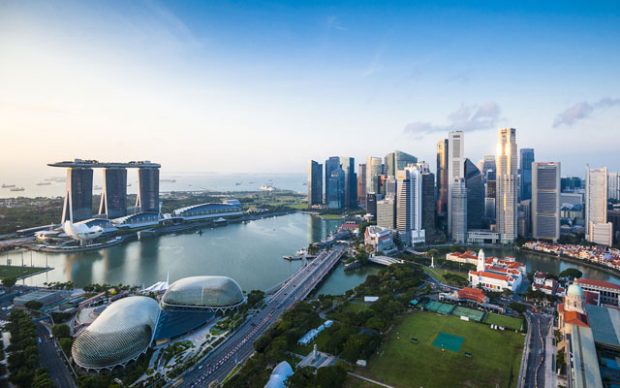Singapore responds to Hong Kong

Singapore (TTG Asia)
By Ivan Lim
Contributor to AsiaN
Singapore: In 2016, a Singaporean civic activist Jolovan Wham was found guilty of organising an illegal public assembly without a police permit.
The theme of the indoor conference was Civil Disobedience and Social Movements. There was a Hong Kong connection: Joshua Wong was a pro-democracy student leader who spoke via video. Singapore speakers included freelance journalist Kristen Han and artist/activist Seelan Palay.
The current prolonged protests in Hong Kong, a sister city, have won both praise and caution. “Hats off” to the passion, courage and sense of purpose of the young protesters, chimed fellow journalist Tan Bah Bah.
“Their legitimate fight for rights and freedom against subtle encroachments has commanded the respect of many Singaporeans,” he wrote in his weekly column in the Independent-Singapore news site.
He cited a Blackbox Survey that showed more than three-quarters of 1,000 Singaporeans polled backed the Hong Kong demonstrations that was sparked by opposition to the government’s Extradition Bill.
In the face of massive demonstrations, the authorities announced it was shelving indefinitely the controversial Bill that would allow fugitives in the safe haven to be handed into Chinese custody.
Sensing the government’s defensive position, the protesters pressed their demands – withdrawal of the Bill, resignation of Chief Executive Carrie Lam and an independent probe into police brutality. As the government dug in its heels, hardliners took to defying and clashing with the police riot squad firing teargas and rubber bullets.
As the protest turned violent, some protesters went on to ransack the Legislative Council building and vandalised the Beijing Liaison Office where the red China emblem was splashed with black paint.
At this point, sentiments in the city-state began to shift. “The Hongkongers have gone too far,” said an elderly Singaporean. “While they have every right to voice their grievances, they must respect the law of the land.”
Singaporeans are also finding it difficult to fathom the zero-sum gambit of the protest movement. On top of disrupting local businesses and transport services, the protesters had staged airport sit-ins to draw international attention oblivious of the inconvenience caused to foreigners.
Calling it a trap, protester organisers have rejected Ms Carrie Lam’s latest offer for dialogue. Like Hong Kong, Singapore had gone through British colonial rule and political tutelage.
In fighting for self-rule, the Republic had also seen it share do labour strikes and political unrest in the 1950s and 60s. That baptism of fire, struggle and hardships had taught the people to value stability and moderation.
For more than 50 years, Singaporeans have been ruled by an authoritarian government that wields a set of draconian laws against any threats to political stability.
Other than Jolovan Wham, his fellow activist, Seelan Palay was arrested in 2017 when he staged a one-man artistic protest in front of Parliament House decrying the 32- year detention without trial of opposition politician Dr Chia Thye Poh under the late Prime Minister Lee Kuan Yew.
Such a swift crackdown by the People’s Action Party government is the classic “wring the neck of a chicken to frighten monkeys”. Hence, my fellow journalist Tan Bah Bah’s desire to see gutsier Singaporeans follow in the footsteps of Hongkongers.
Singaporeans wonder why Hongkongers living under a ‘One-country, two systems’ system seem unwilling or unable to strike a compromise with the authorities.
Perhaps Hongkongers have keener sensibilities. Like children nurtured by tolerant and care-free parents, they could not bear to see themselves being given up to a stern and forbidding one. They put a higher premium on freedom and democracy than material welfare.
In contrast, pragmatic Singaporeans give more priority to material things, like to bread-and butter issues. Under an unwritten compact with the government, Singaporeans have been willing to accept limitations on freedoms in return for having good-paying jobs, affordable housing, and a safe and pleasant environment to bring up their children.























































